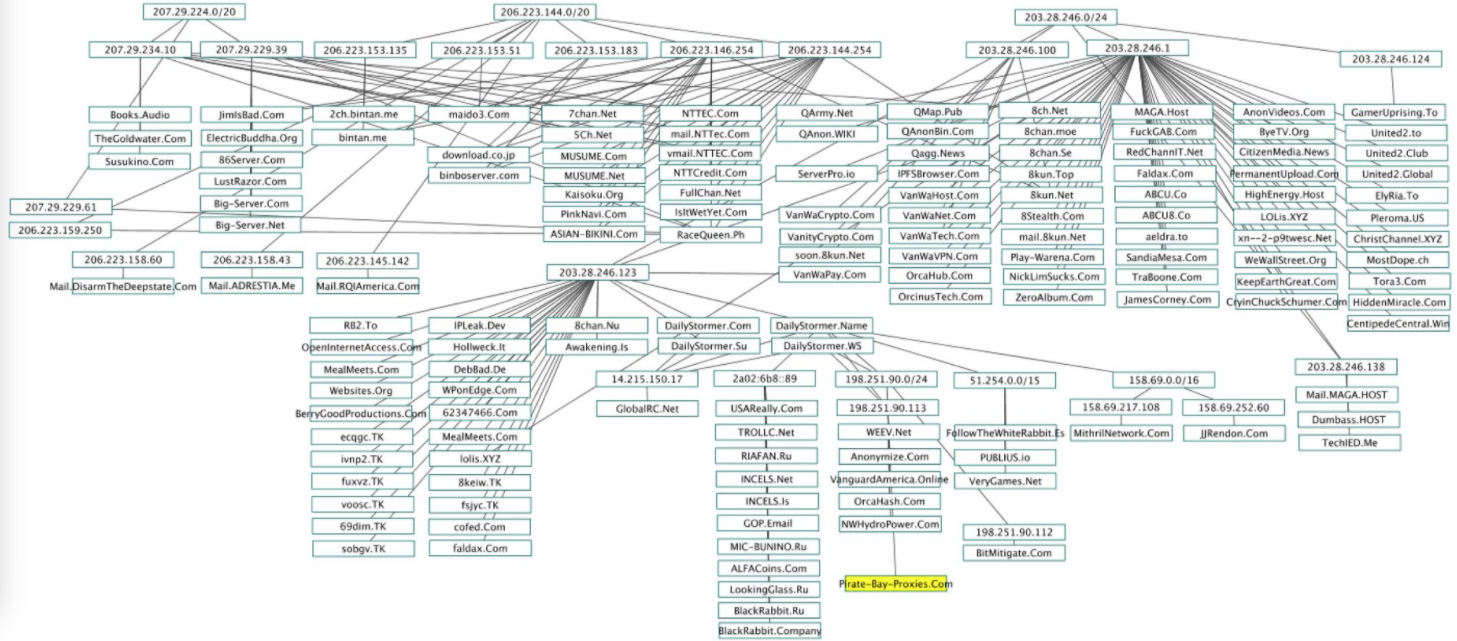Category Archives: Ne’er-Do-Well News
Two Charged in SIM Swapping, Vishing Scams
Two young men from the eastern United States have been hit with identity theft and conspiracy charges for allegedly stealing bitcoin and social media accounts by tricking employees at wireless phone companies into giving away credentials needed to remotely access and modify customer account information.
The Now-Defunct Firms Behind 8chan, QAnon
Some of the world’s largest Internet firms have taken steps to crack down on disinformation spread by QAnon conspiracy theorists and the hate-filled anonymous message board 8chan. But according to a California-based security researcher, those seeking to de-platform these communities may have overlooked a simple legal solution to that end: Both the Nevada-based web hosting company owned by 8chan’s current figurehead and the California firm that provides its sole connection to the Internet are defunct businesses in the eyes of their respective state regulators.
In practical terms, what this means is that the legal contracts which granted these companies temporary control over large swaths of Internet address space are now null and void, and American Internet regulators would be well within their rights to cancel those contracts and reclaim the space.
QAnon/8Chan Sites Briefly Knocked Offline
A phone call to an Internet provider in Oregon on Sunday evening was all it took to briefly sideline multiple websites related to 8chan/8kun — a controversial online image board linked to several mass shootings — and QAnon, the far-right conspiracy theory which holds that a cabal of Satanic pedophiles is running a global child sex-trafficking ring and plotting against President Donald Trump. Following a brief disruption, the sites have come back online with the help of an Internet company based in St. Petersburg, Russia.
Report: U.S. Cyber Command Behind Trickbot Tricks
A week ago, KrebsOnSecurity broke the news that someone was attempting to disrupt the Trickbot botnet, a malware crime machine that has infected millions of computers and is often used to spread ransomware. A new report Friday says the coordinated attack was part of an operation carried out by the U.S. military’s Cyber Command.
Amid an Embarrassment of Riches, Ransom Gangs Increasingly Outsource Their Work
There’s an old adage in information security: “Every company gets penetration tested, whether or not they pay someone for the pleasure.” Many organizations that do hire professionals to test their network security posture unfortunately tend to focus on fixing vulnerabilities hackers could use to break in. But judging from the proliferation of help-wanted ads for offensive pentesters in the cybercrime underground, today’s attackers have exactly zero trouble gaining that initial intrusion: The real challenge seems to be hiring enough people to help everyone profit from the access already gained.
Promising Infusions of Cash, Fake Investor John Bernard Walked Away With $30M
September featured two stories on a phony tech investor named John Bernard, a pseudonym used by a convicted thief named John Clifton Davies who’s fleeced dozens of technology companies out of an estimated $30 million with the promise of lucrative investments. Those stories prompted a flood of tips from Davies’ victims that paint a much clearer picture of this serial con man and his cohorts, including allegations of hacking, smuggling, bank fraud and murder.
Who is Tech Investor John Bernard?
John Bernard, the subject of a story here last week about a self-proclaimed millionaire investor who has bilked countless tech startups, appears to be a pseudonym for John Clifton Davies, a U.K. man who absconded from justice before being convicted on multiple counts of fraud in 2015. Prior to his conviction, Davies served 16 months in jail before being cleared of murdering his wife on their honeymoon in India.
Chinese Antivirus Firm Was Part of APT41 ‘Supply Chain’ Attack
The U.S. Justice Department this week indicted seven Chinese nationals for a decade-long hacking spree that targeted more than 100 high-tech and online gaming companies. The government alleges the men used malware-laced phishing emails and “supply chain” attacks to steal data from companies and their customers. One of the alleged hackers was first profiled here in 2012 as the owner of a Chinese antivirus firm.











